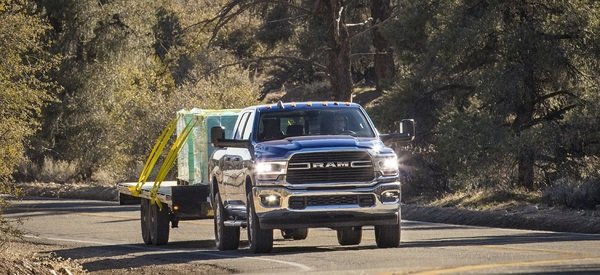When it comes to purchasing a hot shot truck, it’s important to consider all the available options and make an informed decision about which size truck best suits your needs. To get you started, here are twenty questions you should ask yourself when considering which size hot shot truck is
data-offset-key=”8vojj-69-0″> right for you. Are there weight or size restrictions that your local municipality requires? Do you need air brakes or electric brakes? Is storage an issue? What kind of hauling capacity are you looking for? Are there truck movers available in your area if needed?
What size trailer do you need to haul your goods? How often will you need to refuel your truck? Does payload capacity affect your decision? What is the expected load size and frequency? Will you need additional equipment such as fork lifts, winches, and access ramps? Do you have a preference for two–wheel drive or four–wheel drive? What availability, maintenance and repair services are available for your truck? What safety features should the truck include?
What is the weight of the products I’ll be hauling?
Knowing the weight of the products you’ll be hauling is the first step in deciding the size of the hot shot dispatch truck you need. If you’re hauling lighter loads (under 10,000 lbs.), consider a smaller truck, like a RAM 4500. For heavier loads (over 10,000 lbs.), you’ll need a larger truck such as a RAM 5500 or Ford F-550.
How often will I use the truck?
If you’re only using your hot shot truck occasionally, you may not need a larger truck. However, if you’re using your truck every day, you’ll need a larger, sturdier truck that can handle the repeated use.
You may also need to consider the additional features needed for your business, such as an extended flatbed or air–conditioned cab. Moreover, the size of your truck should fit the size of your payloads, as larger trucks will be necessary for trucking larger items. Lastly, the type of terrain you drive in and any special road or terrain requirements should be taken into consideration when selecting a truck size.
How much money do I have to spend?
Before making a purchase, it’s important to consider how much money you’re willing to spend on the truck. While larger trucks tend to be more expensive, keep in mind that they usually come with more advanced features, such as more powerful engines, more accessories and room inside the cab.
How many people will use the truck?
If you’ll be sharing the truck with multiple people, you’ll need a larger truck, with more seating and space inside the cab. This is especially important if you’re hauling a lot of personnel, such as workers and relief aid workers.
What type of terrain will I be driving on?
Knowing the type of terrain you’ll be driving on can help you determine the size of truck you need. If you’ll be driving mainly on paved roads, you won’t need a heavy-duty truck. However, if you’ll be traversing rough terrain, you’ll need a rugged truck with a higher ground clearance and more powerful engine.
What size bed should I get?
Once you decide on a size of truck, you’ll also need to decide on the size of the bed. Generally, the bigger the truck, the bigger the bed. However, keep in mind that larger beds can be harder to maneuver, so it’s important to ensure you get the right size bed for the type of hauling you’ll be doing.
What type of cargo will I be hauling?
It’s important to consider what type of cargo you’ll be hauling when selecting the size of the hot shot truck. If you’re hauling construction materials, you’ll need a larger truck. For smaller items, such as furniture and appliances, a mid-sized truck will do the trick.
Will I need towing capacity?
If you plan on towing large items, such as boats or trailers, it’s important to make sure the truck you get offers enough towing capacity. For example, the RAM 5500 offers up to 20,000 lbs. of towing capacity.
What size and type of engine should I get?
The size and type of engine you choose will also affect the size of the truck you need. For medium-duty jobs, you can opt for a smaller, more efficient engine. For heavier loads, you’ll need a more powerful engine.
What type of transmission should I get?
Transmissions are important when it comes to hot shot trucking, as they dictate the speeds and how much power is delivered to the engine. Manual transmissions offer more control, while automatic transmissions require less effort from the driver.
What type of fuel should I use?
Depending on the truck and the job you’re doing, you may have to consider different fuel types. Generally, diesel engines are more powerful, while gasoline engines are more cost-effective.
What type of driving will I be doing?
When deciding the size of the truck you need, it’s important to consider the type of driving you’ll be doing, as this can influence your selection. If you’ll mainly be driving on highways, you’ll need a larger, more powerful truck. For off-road riding, you can get away with a smaller, lighter truck.
What type of suspension should I look for?
The type of suspension you have can have an effect on the size of the truck you choose. If you’ll be doing a lot of off-road driving, you’ll want a truck with a more durable suspension system.
What type of tires should I use?
The type of tires you use can make a difference in the size of the truck you get. If you’re hauling heavier loads, you’ll want to get tires with greater durability and load capacity.
What is the total cost of the truck?
When considering the size of the hot shot truck you should purchase, you’ll need to factor in the total cost. Larger trucks tend to be more expensive, but they may also be a better value in the long-run if they have more advanced features and engines.
What safety features should I consider?
When deciding on a size of truck, you should consider the safety features available. Larger trucks generally have more advanced safety features, such as airbags and anti-lock brake systems, which can help prevent accidents and injuries.
What maintenance requirements should I be aware of?
Maintenance costs are an important factor when choosing the size of the hot shot truck you need. Larger trucks tend to require more maintenance, while smaller trucks may be easier to keep up with.
What type of warranty should I look for?
Warranties are important when making an investment in a hot shot truck. Some manufacturers offer warranties on engines and chassis, which can give you peace of mind.
What type of work should I expect my truck to do?
Knowing the types of jobs you’ll be doing with your hot shot truck can help you determine the size you need. If you’ll mainly be doing light hauling, a smaller truck may be sufficient. However, if you’ll be hauling heavy loads, you’ll need a larger, more powerful option.
What other features should I look for?
Last but not least, you should consider the different additional features you might want in a hot shot truck. This can include power windows, air-conditioning, satellite radio, Bluetooth connectivity and airbags.
No matter what type of hot shot truck you need, it’s important to take the time to consider all of your options, including size. By asking yourself these twenty questions before purchasing a hot shot truck, you’ll be able to make a more informed decision and get the right size truck for your needs.










